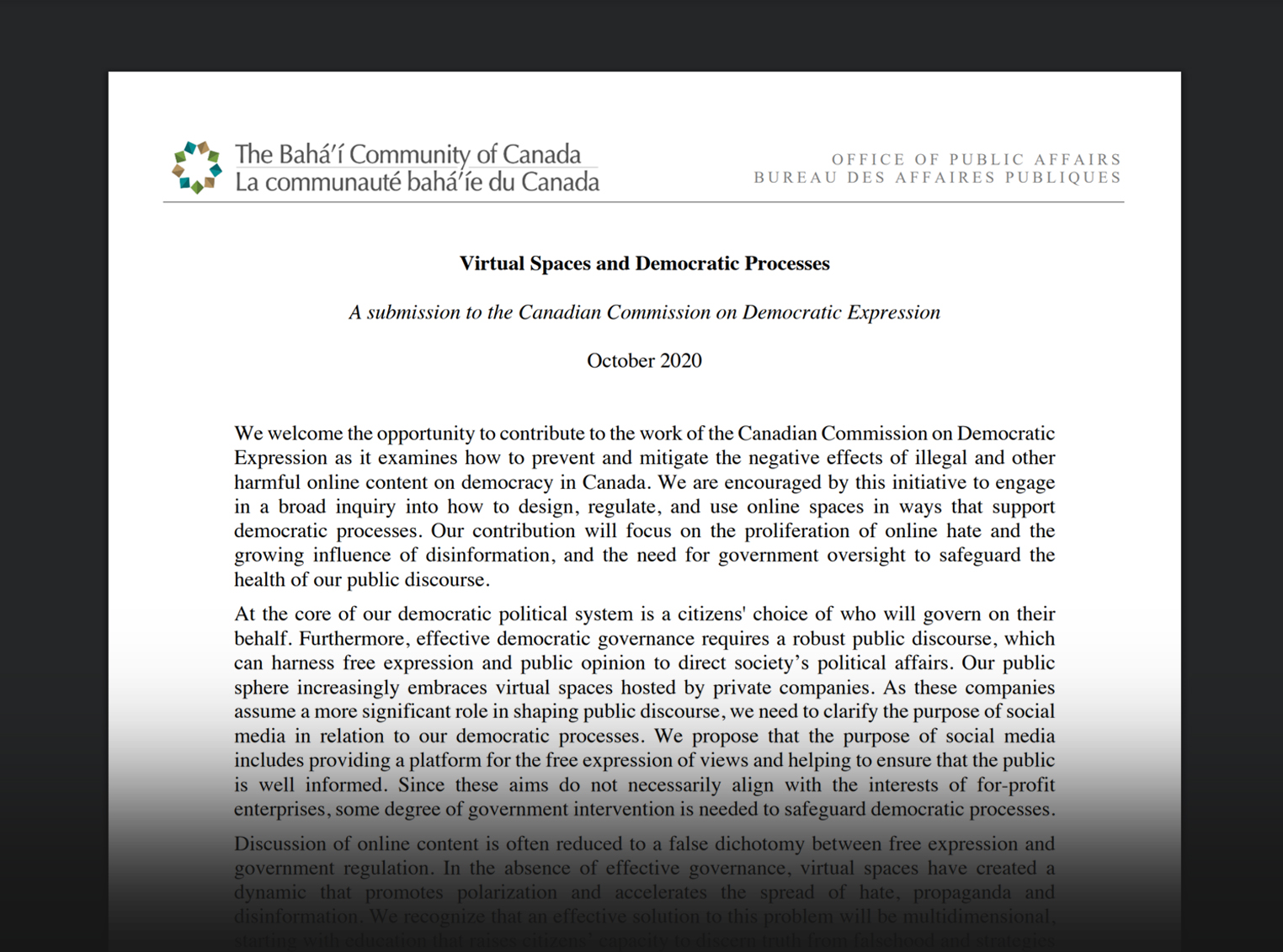More of our public discourse takes place in virtual spaces, and this is presenting new challenges to democratic processes in Canada and other countries around the world.

The Public Policy Forum, a Canadian think tank, has created the Canadian Commission on Democratic Expression in order to investigate how to prevent and mitigate the negative effects of illegal and other harmful online content on democracy in Canada. The seven members of the Commission include prominent academics and thinkers, including a former Chief Justice of the Canadian Supreme Court.
At the invitation of the Commission, the Office of Public Affairs made a formal contribution to its work. The submission focused on the proliferation of online hate and the growing influence of disinformation, and the need for government oversight to safeguard the health of our public discourse.
“Canada’s democratic processes depend upon the ability of citizens to trust the information they receive, and to be able to participate freely in public conversation,” said Geoffrey Cameron, Director of the Office of Public Affairs. “As more of our public discourse moves online, we need to clarify the purpose of these virtual spaces and take appropriate measures to safeguard them from the spread of disinformation and hatred.”
The submission notes that many virtual spaces have created a dynamic that promotes polarization and accelerates the spread of hate, propaganda and disinformation. While the education of citizens remains an essential part of the solution to this problem, effective governance is also required.
Freedom of expression is an important value of Canadian society, and it deserves to be protected. The submission notes, however, that “no one has the uninhibited ‘right to be amplified’”. Hatred and disinformation spread quickly on social media, often because of algorithms that can accelerate their diffusion and ambiguous or ineffective content moderation. This is a governance challenge that invites government regulation, changes to corporate practice, and ongoing consultation with civil society and community groups.
This submission builds on other contributions made by the Office of Public Affairs to an evolving conversation about how to address the problem of online hate. Last year, the Baha’i community was invited to testify to the House of Commons Standing Committee on Justice and Human Rights as part of a study on online hate. The Office of Public Affairs is part of the Canadian Coalition to End Online Hate.

